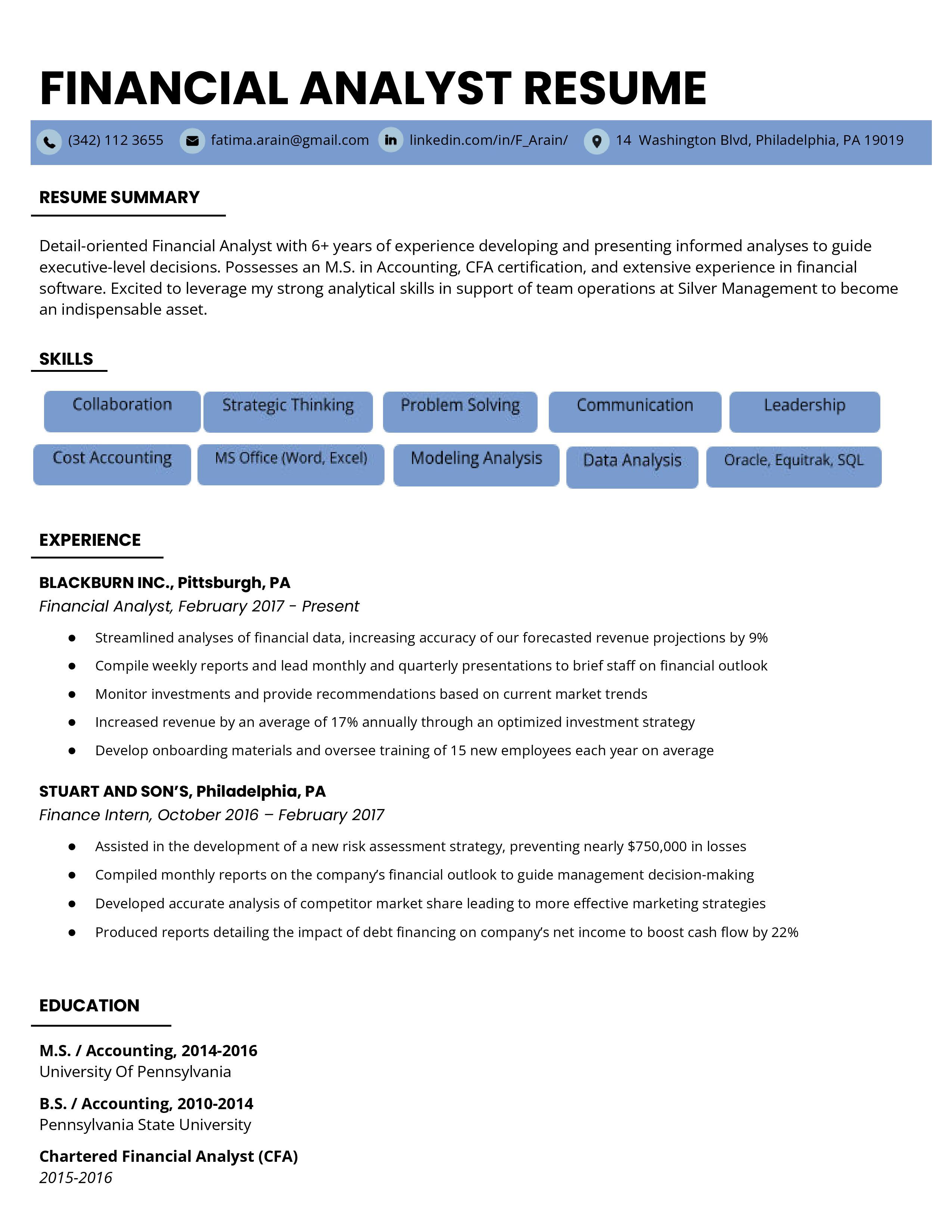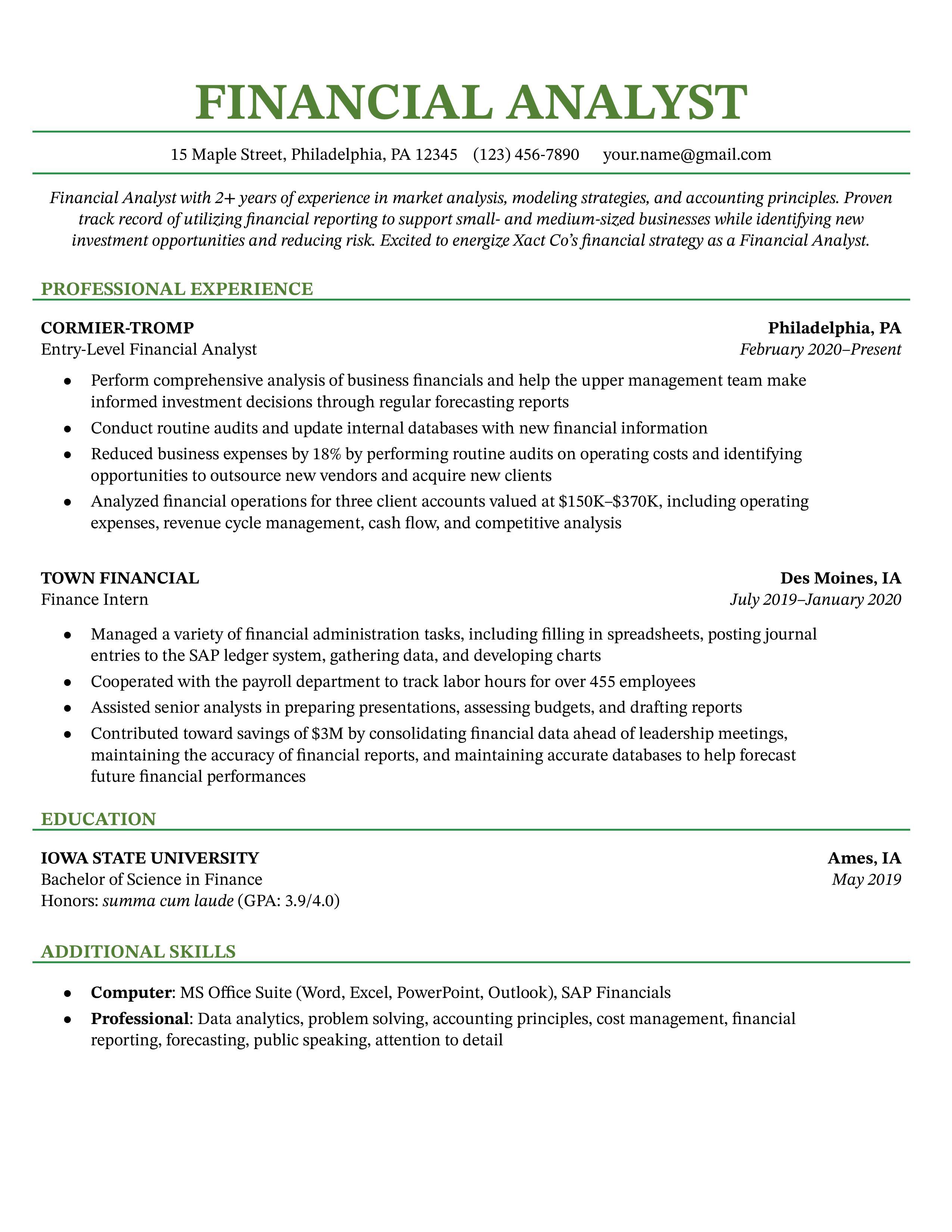Finance Resume Templates With A Guide to Resume Writing
Published on September 8th, 2024
There's a lot more to building a successful finance career than the right education and qualifications. One critical ingredient that will also help you land that coveted finance job is crafting a stand-out resume that is targeted toward finance roles. Job seekers greatly underestimate the power of a well-crafted resume.
In a competitive finance job market, you want to leave a mark with recruiters. Your resume must demonstrate your competence, qualifications, and why you are the best fit for that particular position. The difference between an average finance resume and a great one is what gets you promoted or further ahead in your career. It is the key to showing your capabilities and achievement, which puts you at the highest probability of getting hired.
In this blog post, we outline exactly what you should include in a resume for a financial analyst or financial advisor position, as well as expert tips and finance resume examples to help get you noticed and hired.
Finance Resume Templates
1. Financial Analyst Resume Example
2. Financial Advisor Resume Example
3. Financial Advisor Resume Example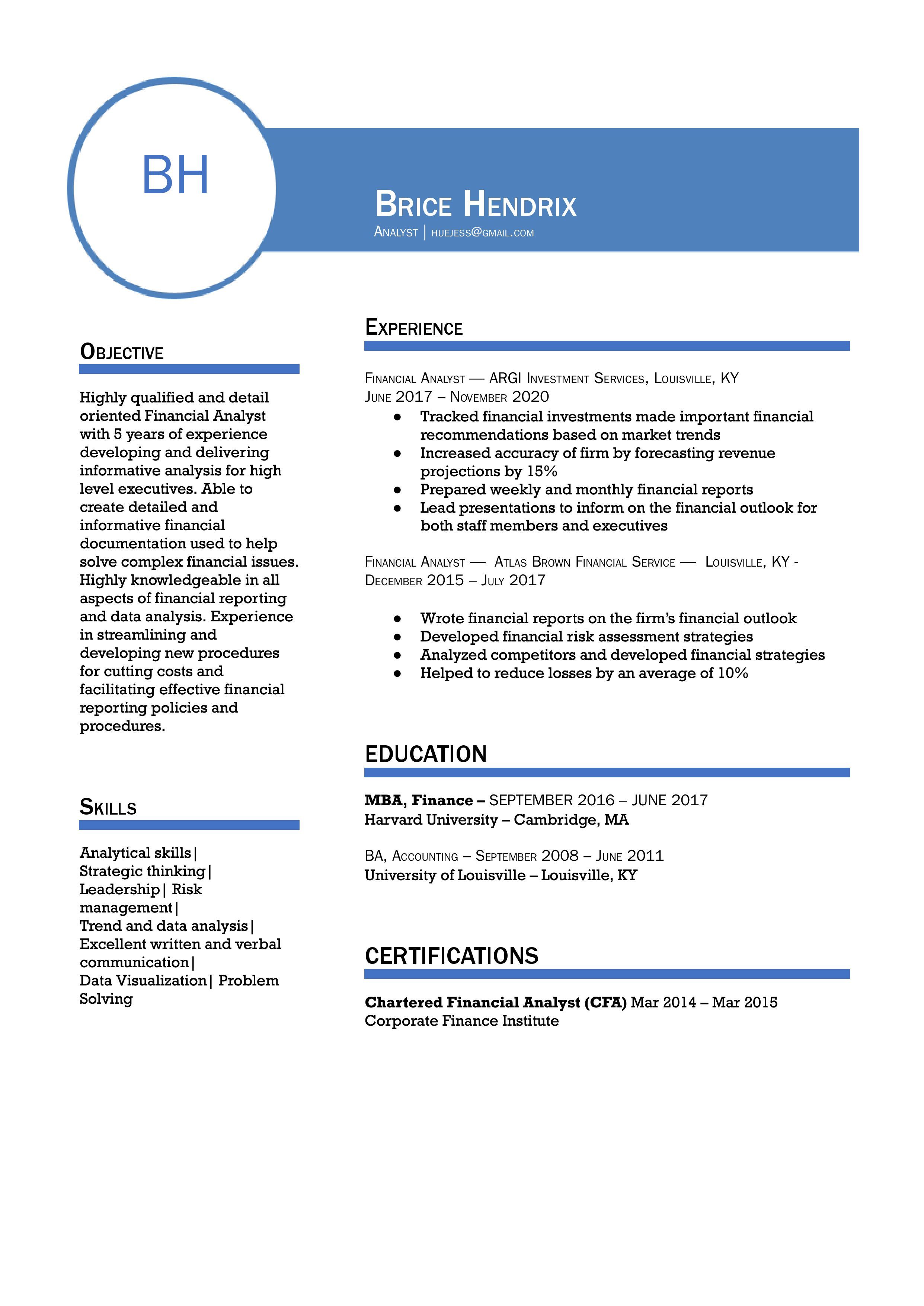
4. Financial Advisor Resume Example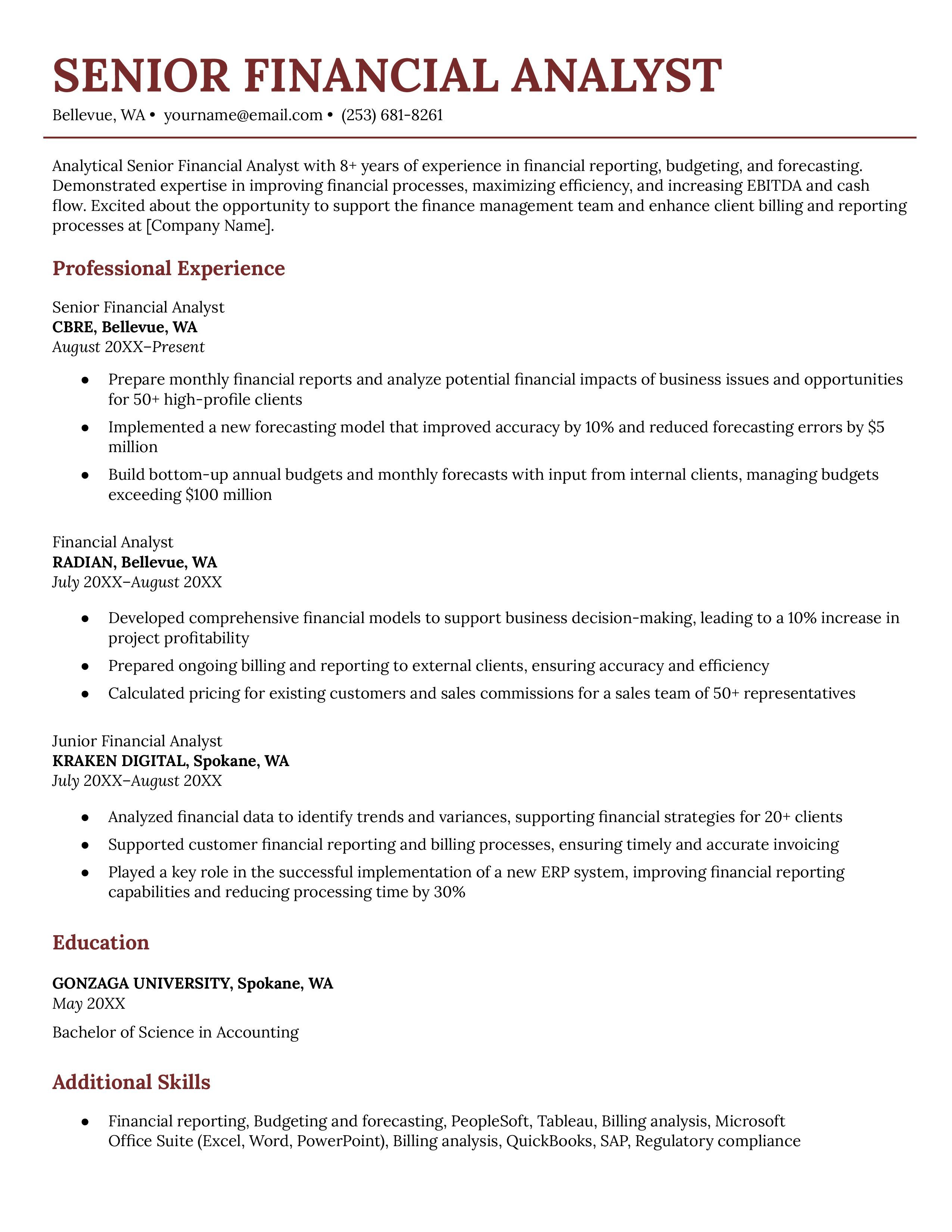
5. Financial Advisor Resume Example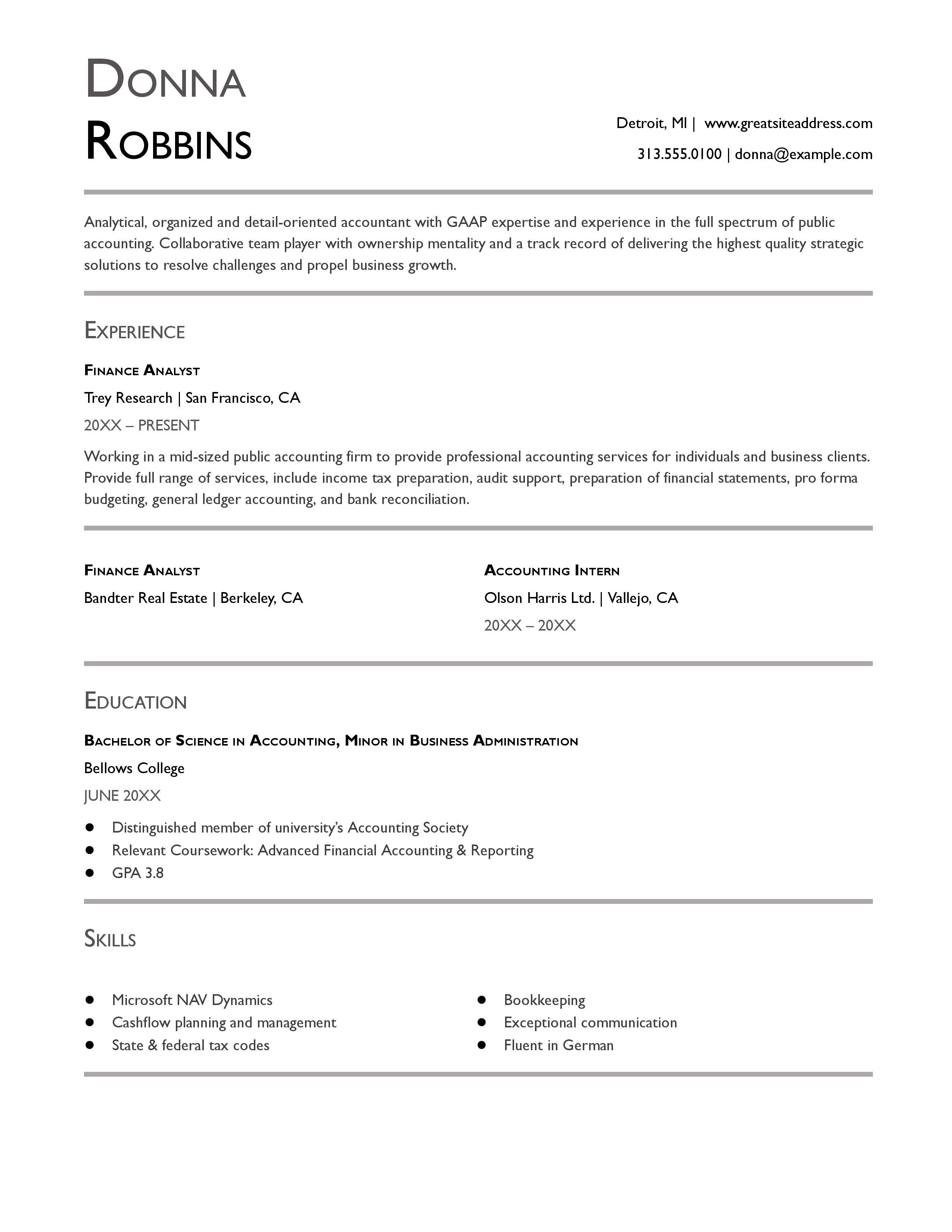
Top 10 Finance Resume Writing Tips
- Tailor Your Resume
One-size-fits-all resumes rarely cut through today’s competitive job market. Tailoring your resume for each finance job you apply for is crucial. Review the job description and highlight the specific skills and qualifications the employer is looking for. For instance, if the position requires experience in financial forecasting or risk management, make sure these competencies stand out in your resume. Customizing your resume demonstrates that you have a keen understanding of the role and are genuinely interested in it, which can greatly increase your chances of landing an interview. - Quantify Achievements
Numbers speak volumes, especially in the finance industry. Recruiters and hiring managers are always looking for measurable results, so include concrete achievements to showcase your impact. Rather than simply stating that you “managed client portfolios,” say “managed client portfolios worth $5 million, achieving an average annual return of 12% over three years.” Quantifying your work helps to paint a clearer picture of your capabilities and gives employers a better sense of the value you can bring to their company. - Keyword Optimization
Many companies use Applicant Tracking Systems (ATS) to filter resumes before they even reach a human recruiter. To ensure your resume passes through these systems, optimize it with finance-specific keywords. Keywords could include terms like “financial analysis,” “budgeting,” “forecasting,” “financial modeling,” or specific tools such as “Excel,” “Bloomberg,” or “SAP.” The key is to use the same terminology that appears in the job listing, as ATS software often ranks resumes based on keyword match. However, avoid keyword stuffing—your resume should remain readable and professional. - Professional Summary
A strong professional summary at the top of your resume can immediately grab the attention of recruiters. This is your chance to briefly highlight your core competencies, years of experience, and key achievements in finance. Think of it as a sales pitch for your resume. For example: “Detail-oriented Financial Analyst with 7 years of experience in financial planning, forecasting, and budgeting. Proven track record in increasing company revenue by analyzing market trends and optimizing financial performance.” A well-crafted summary gives hiring managers a snapshot of your potential right from the start. - Highlight Technical Skills
In finance, technical skills are just as important as analytical thinking. Be sure to emphasize your proficiency with the financial tools and software commonly used in the industry, such as Microsoft Excel, QuickBooks, Bloomberg, SAP, or financial modeling platforms. Employers value candidates who are technically proficient because these tools are essential for tasks like data analysis, budgeting, and portfolio management. If you have advanced skills, such as VBA programming in Excel or experience with SQL for data management, make sure these stand out. - Relevant Certifications
Professional certifications add credibility to your resume and demonstrate that you have specialized knowledge in your field. Common finance certifications include the Chartered Financial Analyst (CFA), Certified Public Accountant (CPA), Certified Financial Planner (CFP), and Financial Risk Manager (FRM). If you have completed any of these, be sure to list them in a dedicated “Certifications” section. If you're currently pursuing a certification, you can note that as well. Certifications set you apart from other candidates by showing your dedication to professional development and your expertise in specific finance areas. - Use Action Verbs
Strong action verbs can bring your resume to life and make your achievements more impactful. Instead of using passive phrases like “responsible for” or “tasked with,” opt for action-oriented words such as “analyzed,” “managed,” “forecasted,” “evaluated,” “audited,” “implemented,” and “optimized.” These verbs emphasize your contributions and give the impression that you are a proactive and results-driven professional. They also help convey a sense of ownership over your work, which is important in the finance sector where attention to detail and accountability are key. - Reverse Chronological Order
When listing your work experience, always use reverse chronological order, starting with your most recent position at the top. This allows hiring managers to quickly see your current or most recent job, which is typically the most relevant to the role you are applying for. Each entry should include your job title, the company name, the dates of employment, and a concise list of your responsibilities and achievements. Keep in mind that recruiters usually spend less than a minute reviewing a resume, so make sure the most important details are easy to find and digest. - Include Internships
If you are an entry-level candidate or transitioning into finance from another industry, internships can be valuable additions to your resume. Even if they were unpaid or short-term, finance internships offer hands-on experience and demonstrate that you have practical knowledge in areas like financial analysis, auditing, investment banking, or portfolio management. Be sure to highlight any specific projects or accomplishments during your internship, such as assisting in financial modeling or conducting market research. These experiences can help bridge the gap between academic learning and real-world application. - Proofread Thoroughly
A single typo or formatting error can cost you the job. In the finance industry, attention to detail is paramount, and even minor mistakes on your resume can reflect poorly on your professionalism and meticulousness. After drafting your resume, review it multiple times and use tools like spell-check to catch any errors. Additionally, consider having a trusted colleague or mentor review your resume with fresh eyes. They might spot inconsistencies or provide feedback to help refine your content. A polished, error-free resume shows that you take the application process seriously.

Conclusion
In the competitive finance industry, a well-crafted resume is your ticket to getting noticed by recruiters and landing your next job. By tailoring your resume to each role, quantifying your achievements, and highlighting both your technical skills and professional certifications, you can significantly boost your chances of success. Always remember that attention to detail, clear formatting, and a strong professional summary will set you apart from other candidates. With the right approach, your finance resume can open the door to new career opportunities and put you on the path to long-term success.

Authors

Soujanya Varada
As a technical content writer and social media strategist, Soujanya develops and manages strategies at HireQuotient. With strong technical background and years of experience in content management, she looks for opportunities to flourish in the digital space. Soujanya is also a dance fanatic and believes in spreading light!
Hire the best without stress
Ask us how
Never Miss The Updates
We cover all recruitment, talent analytics, L&D, DEI, pre-employment, candidate screening, and hiring tools. Join our force & subscribe now!
Stay On Top Of Everything In HR

